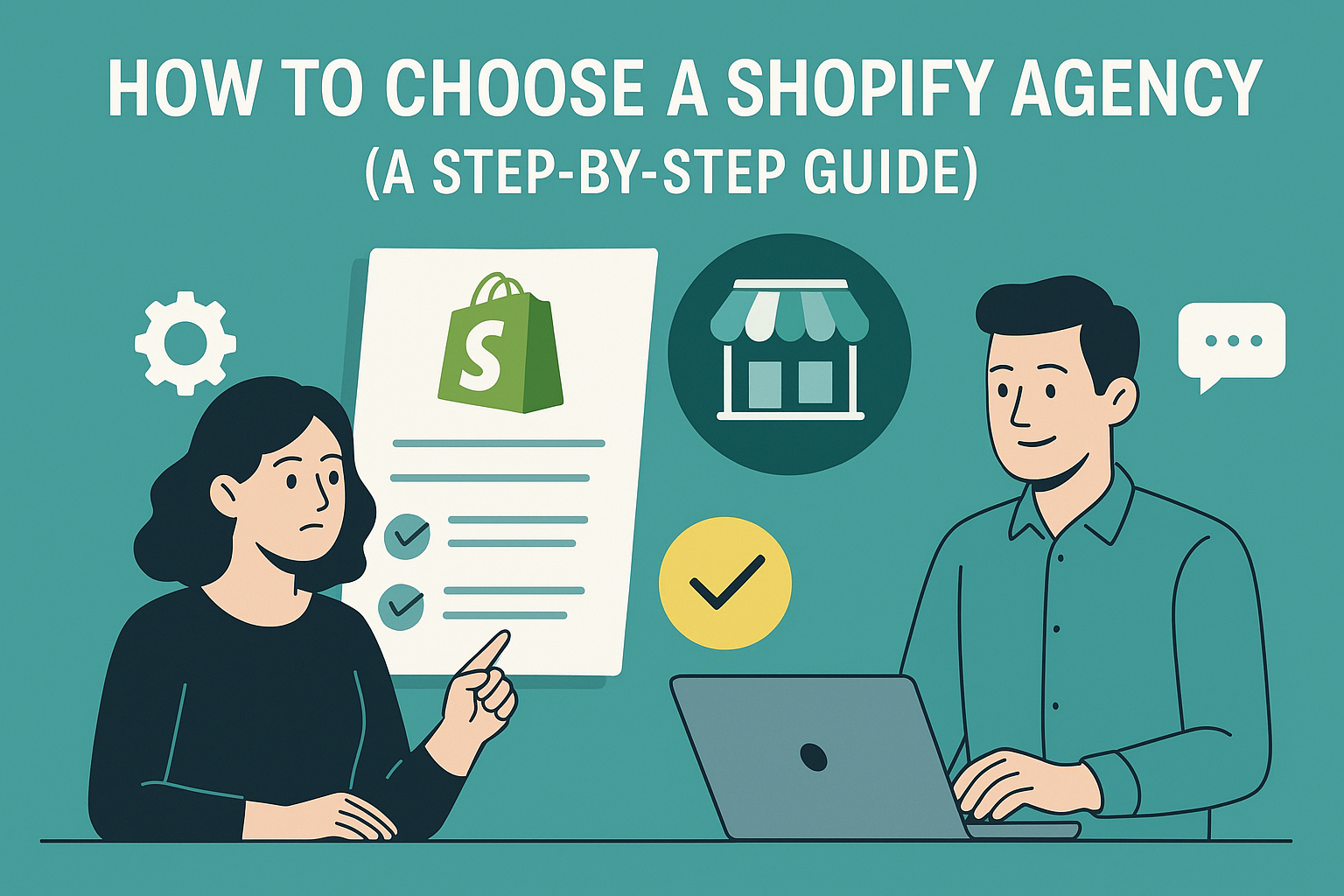Selecting the right Shopify agency can make or break your e-commerce business. The wrong agency can waste time, money, and energy, while the right one can help your store thrive. This blog breaks down the process into actionable steps, making it easier to pick a Shopify agency that fits your goals.
Why Hiring a Shopify Agency Matters
A Shopify agency brings expertise in design, development, marketing, and conversion optimization. While Shopify offers tools to build your store independently, hiring an agency allows you to hire expert shopify developers who provide specialized knowledge, ensuring your website performs efficiently and attracts customers.
Choosing the right agency allows you to focus on running your business while professionals handle technical aspects. They help you avoid mistakes that could hurt your revenue or brand reputation. Working with an agency also gives you access to advanced features, apps, and integrations that you might not manage on your own.
Step 1: Define Your Goals
Before searching for an agency, clarify what you want to achieve. Do you need a full store setup, a redesign, app integration, or marketing services?
Write a list of your objectives and rank them by priority. For example, if your goal is increasing sales, a Shopify agency with conversion optimization skills will be more valuable than one that only offers visual design.
Having clear goals makes communication with the agency easier and ensures both sides are on the same page.
Step 2: Check Experience and Expertise
Not every Shopify agency offers the same level of expertise. Look for agencies with proven experience in your industry or store size.
Check case studies or client portfolios to see examples of completed projects. Pay attention to results like improved sales, faster load times, or better mobile performance.
Additionally, verify whether the agency is an official Shopify Partner. Shopify Partners have access to resources, tools, and training that can directly benefit your project.
Step 3: Review Services Offered
Shopify agencies provide various services, but not all agencies cover everything you need. Some focus on design, while others specialize in marketing or technical development.
List the services your store requires and match them with what each agency offers. Make sure the agency can handle tasks like custom coding, theme development, app installation, or Shopify Plus setups if needed.
This ensures you won’t have to hire multiple vendors, saving time and reducing miscommunication.
Step 4: Evaluate Communication and Support
Clear communication is essential for a successful partnership. During initial conversations, pay attention to how quickly the agency responds, their willingness to answer questions, and the clarity of their explanations.
Ask how they handle ongoing support and maintenance. Shopify stores require regular updates, bug fixes, and performance monitoring. Knowing that your agency offers consistent support prevents potential issues after the project ends.
Step 5: Compare Pricing and Packages
Pricing structures can vary significantly among Shopify agencies. Some charge a flat fee, others an hourly rate, and some offer package deals.
While cost matters, it shouldn’t be the only factor. Compare pricing in relation to the services provided. A higher-priced agency might deliver faster results or higher-quality work, making it worth the investment.
Ask for detailed estimates, including any potential extra costs. This transparency avoids surprises and helps you budget effectively.
Step 6: Check Reviews and Testimonials
Previous client experiences provide insight into an agency’s reliability and performance. Look for reviews on platforms like Clutch, Google, or Shopify’s own directory.
Read testimonials carefully to identify patterns. For example, if multiple clients mention delays or poor communication, it may be a red flag. Positive reviews should highlight professionalism, timely delivery, and measurable results.
Step 7: Conduct Interviews
Once you shortlist a few agencies, schedule interviews. Ask about their approach to Shopify projects, problem-solving methods, and how they handle deadlines.
A good agency will ask questions about your store, target audience, and goals. They should provide suggestions for improving your store while respecting your vision.
During interviews, assess whether you feel confident working with the team. Compatibility matters because you’ll be collaborating closely for an extended period.
Step 8: Review Contracts and Terms
Before signing any agreement, carefully review contracts and service terms. Check project timelines, payment schedules, and deliverables.
Pay attention to clauses regarding revisions, cancellations, and ongoing maintenance. Clear contracts protect both parties and ensure expectations are aligned.
Step 9: Start With a Trial Project
If possible, start with a small project before committing to a long-term contract. This approach lets you evaluate the agency’s skills, communication, and ability to meet deadlines.
A trial project reduces risk and provides practical insight into how the agency works. Once satisfied, you can scale up to larger projects with confidence.
Step 10: Monitor Performance
After your Shopify store goes live, track its performance closely. Review metrics like traffic, conversion rates, page speed, and customer engagement.
A reliable agency will continue monitoring and suggest improvements when necessary. This ongoing partnership ensures your store remains competitive and continues growing.
Common Mistakes to Avoid
When hiring a Shopify agency, businesses often make these mistakes:
-
Choosing based on price alone: Cheap agencies may cut corners, resulting in delays or low-quality work.
-
Ignoring past work: Not checking case studies or reviews increases the risk of hiring an inexperienced agency.
-
Skipping interviews: Failing to speak directly with the team can lead to mismatched expectations.
-
Overlooking post-launch support: Without ongoing support, small issues can turn into major problems.
Avoiding these mistakes saves time, money, and stress.
Final Thoughts
Picking the right Shopify agency requires research, careful evaluation, and clear communication. Define your goals, check expertise, review services, and compare pricing. Interview agencies and start with a trial project to test their capabilities.
A good agency not only builds your store but also helps it perform, grow, and adapt to market changes. By following these steps, you increase your chances of finding a Shopify partner that meets your business needs and drives long-term success.


